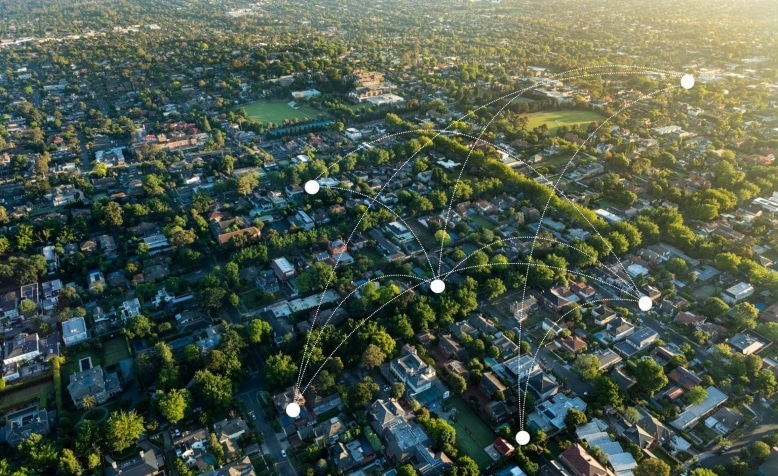Broadband Office Name: Colorado Broadband Office (CBO)
BEAD Award Amount: $826.5 M
Colorado Broadband Director: Brandy Reitter
Website: https://broadband.colorado.gov/
Colorado BEAD Program Tracker
| State | IP Vol 1 Approval | IP Vol 2 Approval | Challenge Process Submission Closed | Challenge Process Final Determination Phase Completed | 1-Year Subgrantee Selection Process |
|---|---|---|---|---|---|
| Colorado | Yes | Yes | Yes | Yes | Yes |
Colorado BEAD Program Information

Key Updates
Colorado received 163 total submissions challenging 21,851 locations through the Broadband, Equity, Access, and Deployment (BEAD) program’s Challenge Submission Phase.
The Colorado Broadband Office has made final determinations and submitted Challenge Process results to NTIA. Colorado plans to post the Challenge Process results in July 2024. Phase 1 of the Subgrantee Selection Process will be from July to August 2024 and includes Project Area Maps and grant guidelines open for public comment. Phase 2 will be from August to October 2024 and includes the registration window, webinars, CBO support to prepare applicants, and the application window.
Colorado BEAD Program Plans & Maps
Colorado BEAD Program Initial Proposal Volume 2: Overview
BEAD Long-Term Objectives
The Colorado Broadband Office (CBO) has established the following goals to ensure high-speed coverage for all Colorado households:
- Expand high-speed broadband infrastructure to reach unserved and underserved areas.
- Increase digital skills.
- Promote affordable broadband services.
- Support equitable access to devices.
- Empower consumers with applications and online content.
Colorado BEAD Program Project Area Design
CBO will use Census Blocks as the base geographic unit. A project area may be a single Census Block, or it may be a cluster of adjacent Census Blocks, no larger than a Census Block Group boundary, as decided by the CBO.
The CBO may decide to combine adjacent Census Blocks into a cluster based on the following factors:
- Provider interest from past funding programs.
- Investment cost.
- Lack of infrastructure.
- Count and proportion of unserved and underserved BSLs.
- Census block boundary that divides a community or neighborhood.
- Other factors as determined by CBO analysis.
Colorado BEAD Program Extremely High Cost Threshold
To identify EHC the CBO will perform a detailed analysis of data from previous applications and awards in Colorado from state and federal funding programs, applications received in the Advance-CPF and Advance-BEAD application process and per-location cost model data from CostQuest Associates (CQA).
BEAD Deployment Subgrantee Selection
CBO is asking for the following preregistration evidence from subgrantees and compliance with: Financial capability, managerial capability, operational capability, technical capability, ownership info, public funding info, compliance with laws, cybersecurity/supply chain compliance, and BABA/EHP/NEPA/NHPA compliance.
Primary Scoring Criteria for Priority Broadband Projects (75%)
- 35% – Minimal BEAD Outlay
- 30% – Affordability
- 10% – Fair Labor Practices
Secondary Scoring Criteria (25%)
- 3% – Speed to Deployment
- 3% – Digital Inclusion
- 7% – Local Support and Community Engagement
- 5% – Michigan Business
- 3% – MBE/WBE/GDBE
- 2% – Open Access
- 2% Equitable Workforce Development and Job Quality
Other Last-Mile Projects
Primary Scoring Criteria for Priority Broadband Projects (75%)
- 35% – Minimal BEAD Outlay
- 30% – Affordability
- 10% – Fair Labor Practices
Secondary Scoring Criteria (25%)
- 1% – Speed to Deployment
- 3% – Speed of Network and Other Technical Capabilities
- 3% – Digital Inclusion
- 5% – Local Support and Community Engagement
- 4% – Michigan Business
- 3% – MBE/WBE/GDBE
- 3% – Open Access
- 3% – Equitable Workforce Development and Job Quality
BEAD Non-Deployment Subgrantee Selection
CBO has determined not to allocate grants for non-deployment activities. The state will revisit the non-deployment activities pending availability of funds after prioritizing unserved, underserved, and CAIs to allow flexibility.
BEAD Eligible Entity Implementation
The CBO plans to perform the following initiatives without making a subgrant:
- Administrative activities to manage the grants to subgrantees.
- Implementation of the Challenge Process.
- Workforce development related to the deployment of broadband.
- Mapping and data collection.
- Implementation of the subgrantee selection process.
BEAD Local, Tribe, and Regional Broadband Planning Process
The partnerships that CBO leverages to increase broadband adoption and the related activities that were included in the Initial Proposal:
- Colorado Dep. of Transportation (CDOT) – work through strategies to deploy fiber and lease fiber to both private partners and local government for middle-mile networks, improve how CDOT operates its own network for its Intelligent Transportation System and lease excess fiber, and improve how CDOT leases ROW for deployment of new fiber/conduit.
- Colorado Dep. of Labor/Employment (CDLE) & Office of Future Work (OFOW) – CBO included CDLE and the OFOW on workforce development plans and strategy. CBO also included digital literacy and inclusion coordination, research and policy development.
- Colorado Dep. of Local Affairs (DOLA) – CBO included DOLA’s broadband program framework to develop the technical assistance and broadband community ready programs. CBO also included a new middle mile program proposal that will support BEAD implementation.
- Colorado Office of eHealth Innovation (OeHI) – OeHI is leading the telehealth
broadband grant to support Colorado healthcare providers and the Department of Corrections in expanding their services. OeHI is working with OFOW to develop Colorados Digital Access Plan and is developing a telehealth access point pilot at rural libraries across the state, with CBO and Colorado State Library.
- Colorado Office of Economic Development & International Trade (OEDIT) – CBO partners with OEDIT to promote broadband services to support rural economic development efforts and encourage broadband infrastructure investment through enterprise zone and opportunity zone tax incentives.
- Colorado Commission of Indian Affairs (CCIA) – CBO will work with Tribes on data sharing agreement. CCIA facilitated the Tribal Consult so that the CBO could work with the Tribes to gather information about broadband strategies.
- Colorado Hospital Association (CHA) – CHA provided access and grant funding data regarding Colorado hospitals, including data regarding the FCC’s Rural Healthcare Program to inform the Digital Access Plan and Initial Proposal.
- Colorado State Library (CSL) – CBO included broadband deployment strategies to rural libraries and to expand digital equity services to communities in its data and Project Areas. Also worked to deploy digital navigators in communities and certain libraries.
- Colorado Dep. of Corrections (DOC) – Worked to identify resources to implement broadband in correctional facilities to support access to emergency services, healthcare and educational opportunities. Developed strategies for deploying infrastructure in facilities across Colorado and CBO allocated federal funding to the DOC to assist with infrastructure and healthcare services.
- Colorado Tourism Office (CTO) – CBO will work with the CTO to develop strategies to fund integrated technology platforms in welcome centers and to assist with digital signage. They will establish an advisory group to review and rank Welcome Center Technology Platform solutions. The CBO included the implementation of the CTO strategies in its secondary criteria for the BEAD scoring framework in the Initial Proposal to encourage ISPs to support these strategies related to deployment.
- Colorado Dep. of Natural Resources (DNR) – CBO worked with DNR to develop and leverage broadband deployment projects at state parks to provide last mile connections in communities surrounding parks.
- EducationSuperHighway (ESH) – CBO partnered with ESH for research and best practices and for assistance with the Colorado-branded ACP enrollment campaign and toolkit. The CBO worked with ESH to include support for MDUs criteria and data gathered to support the Initial Proposal and challenge process.
- Councils of Gov. (COGs) and Economic Development Districts – These entities work with the CBO to provide training, capacity building, broadband network operations, policy development and grant writers for broadband programs. The CBO worked with the COGs to build capacity that resulted in the Broadband Community Ready and Technical Assistance Programs.
- Joint Technology Committee (JTC) – CBO worked with the JTC to include public outreach strategies to help reach out to populations across the state to increase stakeholder engagement. The CBO worked with the JTC to remove legislative barriers that negatively impacted BEAD implementation.
- Colorado Dep. of Education (CDE) – CBO worked with CDE on funding digital equity initiatives in schools across the state. This includes grants for devices, training and hotspots for students who need them. The CBO collaborates with CDE on promoting the ACP to increase enrollment for underserved and marginalized populations.
BEAD Labor Standards & Protection
CBO requires all BEAD subgrantees to submit the following information:
A record of past compliance with federal/employment laws:
- Must address info on deployment projects within the last 3 years.
- Certification form from an Officer/Director level employee of past compliance.
- Written confirmation that subgrantee has disclosed any violations from contractors within the last 3 years.
- Discussion of workforce plan
Plans for ensuring compliance with federal/employment laws:
- How subgrantee will ensure compliance in its labor/employment practices.
- Info on applicable wage scales, wage, and overtime practices for each class of employee expected to be involved in physical construction of the network.
- How subgrantee will ensure implementation of workplace safety committees.
- Comply with the Prevailing Wages Act.
- Other items as outlined in the BEAD NOFO.
BEAD Minority Business Enterprises / Women’s Business Enterprises / Labor Surplus Area Firms Inclusion
CBO plans to ensure awareness of opportunities for MBEs, WBEs, and LSFs include:
- Partnering with other state agencies to help structure procurement plan.
- Raising public awareness of state contracting opportunities through communications and advertisement on state contracting sites.
- Conduct public outreach to promote contract opportunities.
- Providing technical assistance to businesses and applicants about state procurement processes and requirements.
- Provide technical assistance to potential applicants.
- Utilize existing MBE, WBE, and LSF solicitation lists.
- Along with other necessary affirmitive steps.
Organizations that will be included in outreach efforts include, Small Business Administration (SBA) Colorado Offices, Workforce Development Centers, Minority Business Development Agency (MBDA), Women-Owned Small Business Federal Contract Center, Colorado Office of Economic Development and International Trade (OEDIT), Mountain Plains Minority Supplier Development Council, Minority Business Development Agency, The Latino Chamber of Commerce, Aurora-South Metro Small Business Development Center, Colorado Small Business Development Center Network, and the Minority Business Office of Colorado.
Colorado will request the following documents from subgrantees:
- A statement of commitment to following the six affirmative steps from the Officer/Director of the subgrantee’s organization.
- Evidence of planned or completed outreach efforts to MBEs, WBEs and LSF.
- Procurement and retention methods for MBEs, WBEs and LSF in the subgrantee’s workforce plan.
- Certification of MBE/WBE/SBE partners, if known, participating in the BEAD funding project.
BEAD Cost & Barrier Reduction
1. Promoting the use of existing infrastructure.
2. Promoting and adapting dig-once policies.
3. Streamlining permitting processes.
4. Streamlining cost-effective access to poles, conduits, and easements.
5. Streamlining rights of way, including the imposition of reasonable access requirements.
BEAD Low-Cost Broadband Service Option
Subgrantees are required to participate in ACP and Lifeline, along with the following:
- Informs prospective consumers of the existence benefit programs.
- Speeds of 100/20.
- Provides typical latency measurements of no more than 100 milliseconds.
- Is not subject to data caps, surcharges, or usage-based throttling.
- Free upgrade if provider later offers better service.
- Broadband consumer labels.
BEAD Middle-Class Affordability
CBO will include the following policy elements to promote a competitive market composed of robust operators with high-quality broadband infrastructure, with the overall goal of advancing affordability:
- Using regulatory authority to promote structural competition such as eliminating barriers to entry, opening access to multi-dwelling units, or promoting alternative technologies.
- Promoting consumer pricing benchmarks that provide consumers an objective criterion to use in determining whether the rate offerings of broadband service providers are reasonable and to encourage providers to adopt affordable pricing.
- Establishing a regime of continued monitoring and public reporting to ensure that high-speed internet connections are affordable for middle-class households in their territory.

